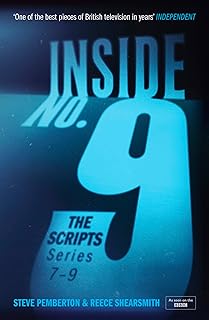Many serious readers often lose interest in reading play scripts after being exposed to Shakespeare in school. Plays are often perceived as two-dimensional blueprints waiting to be brought to life on stage. However, dismissing published editions of playwrights’ works means missing out on a rich literary realm. Playwrights exhibit immense imagination and literary prowess, offering a diverse range of voices and narratives that are as captivating as traditional prose and verse.
This list introduces several playwrights who not only write great plays but also provide an engaging reading experience. From modern picks to revisiting works by classic authors, these playwrights showcase unique theatrical languages, mastery of dialogue, and innovative formal inventions that push the boundaries of theater. By delving into their scripts, readers can explore the power and creativity that these playwrights bring to their work, expanding the possibilities of storytelling beyond traditional narratives.
Anna Deaveare Smith, known for her docudrama style, transforms real-life interviews into compelling characters in “Fires in the Mirror.” Her ability to capture the essence of her subjects through verbatim theater blurs the line between naturalistic speech and theatrical language, offering readers a unique and immersive experience.
Annie Baker’s plays, such as “John,” delve into the depths of human longing and sacrifice through nuanced dialogue and subtle character revelations. Baker’s skill in allowing dramas to unfold gradually invites readers to explore the emotional complexities of her characters.
Eugene O’Neill’s “Long Day’s Journey into Night” stands out for its haunting portrayal of familial struggles and hidden truths. O’Neill’s lyrical stage directions provide vivid imagery that enhances the emotional depth of the characters and the play’s themes, making it a compelling read.
Stephen Adly Guirgis explores dialogue and desperation in “The Last Days of Judas Iscariot,” creating a multicultural purgatory where broken souls confront themes of forgiveness and redemption. Guirgis’s sharp and dynamic dialogue brings the characters to life on the page, immersing readers in a world of conflict and introspection.
Ntozake Shange’s “for colored girls who have considered suicide when the rainbow is enuf” blends poetry and drama to explore the struggles of African American women. Through innovative formatting and visual elements, Shange’s “choreopoem” offers a unique reading experience that fuses storytelling with poetic expression.
Suzan-Lori Parks, in “Topdog/Underdog,” weaves a complex narrative of brotherly love and rivalry, drawing on American history and cultural references to create a rich and engaging story. Parks’s distinctive stage shorthand and rhythmic language bring the characters to life, inviting readers into a world of tension and emotion.
Young Jean Lee’s provocative plays, such as “Songs of Dragons Flying to Heaven,” challenge stereotypes and societal norms, pushing audiences to confront uncomfortable truths. Lee’s avant-garde style and bold storytelling offer a fresh perspective on identity and culture, encouraging readers to question their preconceptions.
Conor McPherson’s “Four Plays” collection delves into the lives of flawed characters facing moral dilemmas and personal struggles. McPherson’s simple yet evocative prose draws readers into intimate and compelling narratives, capturing the essence of human complexity and vulnerability.
Samuel Beckett’s “Happy Days” presents a stark and existential exploration of human existence through the character of Winnie. Beckett’s minimalist style and dark humor create a poignant and thought-provoking reading experience that delves into the futility of life and the passage of time.
Sarah Ruhl’s “Eurydice” offers a magical realist retelling of the classic myth, blending fantasy and emotion to create a dreamlike narrative. Ruhl’s whimsical language and surreal imagery transport readers to a world of enchantment and melancholy, inviting them to explore the boundaries of love and loss.
Exploring these plays as literary works allows readers to appreciate the artistry and creativity of playwrights, offering a new perspective on the power of theatrical storytelling beyond the confines of the stage.
📰 Related Articles
- Wordle and Beyond: Exploring the World of Engaging Word Games for All
- Exploring Australian Stage Play Scripts: Unveiling Theatrical Literary Gems
- Discover Singapore’s Hidden Gems Beyond Tourist Hotspots
- Discover San Jose’s Diverse Attractions Beyond Technology Hub
- Discover Japan’s Alternative Marathons Beyond Tokyo’s Prestige






